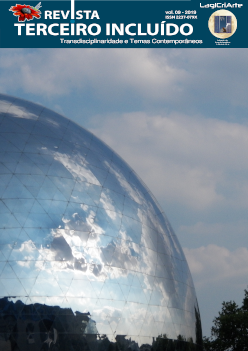APRENDIZAGEM DE CONCEITOS ECOLÓGICOS ANTES-DEPOIS DE CAMINHADA EM TRILHA AMBIENTAL
DOI:
https://doi.org/10.5216/teri.v9i1.51982Palavras-chave:
Environmental education, science education, Atlantic Forest, ecological restoration, conservationResumo
Environmental-science education has aimed to educate about environmental aspects with theoretical and practical science-based activities involving both trails and laboratoryactivities. Here we assessed the effectiveness of using environmental trail in an Atlantic Forest fragment to improve ecological and biological concepts learning. The hypotheses tested were that there is biological and ecological concepts acquisition following the visit to the trail and that the activity increases the comprehension about the multiple functions of species and ecosystem processes. Eight groups of undergraduates and teachers from public schools (N = 161 people) participated of a three-step activity by: i) answering a questionnaire (pre-test); ii) discussing ecological subjects and observe scientific experiments while walking by trail; and iii) answering the questionnaire after the visit (post-test). Results showed significant difference between the pre-test and the post-test for all groups (p = 0.000), indicating that the use of trails increased the understanding of ecological and biological concepts. Furthermore, scores in multiple choices questions were always higher in the post-test showing that participants understood the multiple functions of ecosystem’s elements, enhancing their view and comprehension of ecosystem as a whole. The use of ecological restoration experiments seemed to be a new valuable approach to achieve these outcomes.











